What is the difference between a vegan and a vegetarian?
Veganism and vegetarianism mean no to meat. That much is clear. However, there are nuances between both diets that are still confusing today. What are the differences between being vegan and being vegetarian? Let’s figure it out.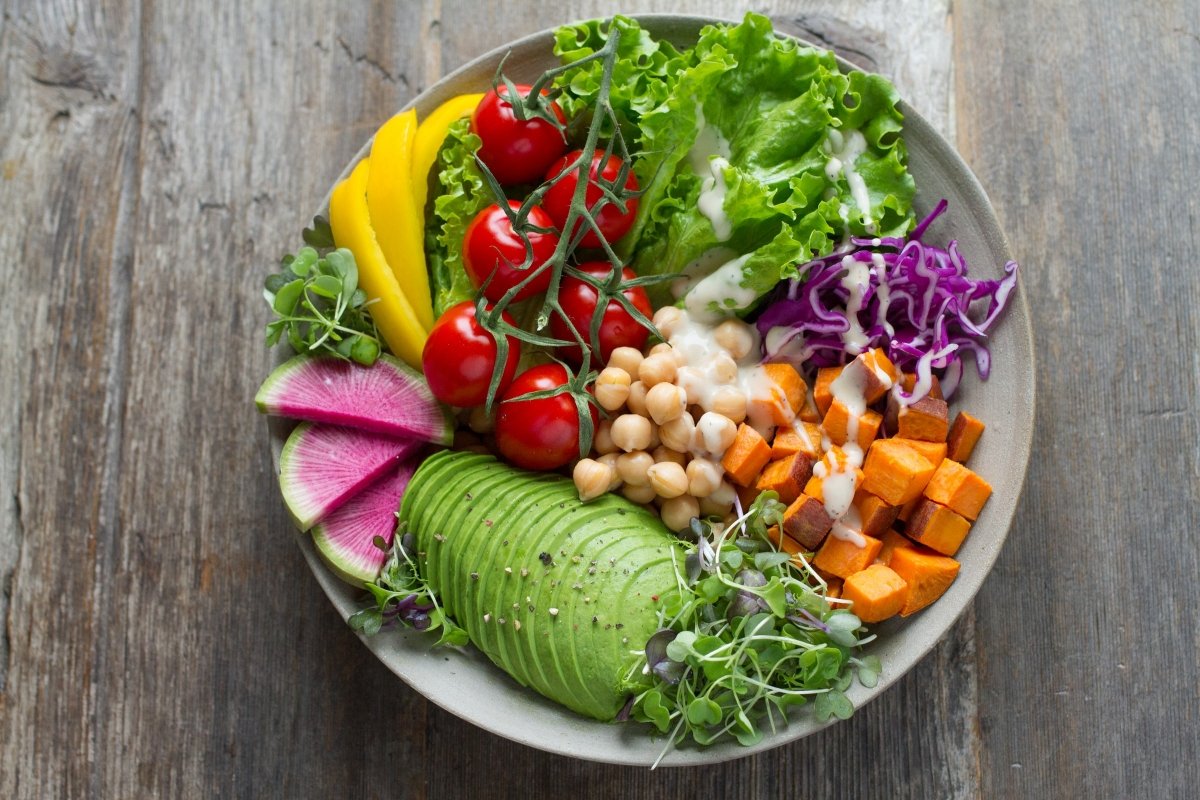
Green, green, and more green. That is the color of plant-based cooking, a culinary revolution that is here to stay. It is a way of life that seeks to reduce the consumption of products of animal origin. We are referring to veganism and vegetarianism, two types of diet that are increasingly widespread, either for health or for animal and/or environmental awareness reasons. However, do you know exactly how to differentiate a vegan from a vegetarian diet? What foods are suitable in each case?
Veganism vs vegetarianism, the main difference
Although the base of both trends could be the same (reducing the consumption of products of animal origin), we could say that veganism is a stricter form of vegetarianism. Vegans eat exclusively 100 % plant-based foods, leaving out any products of animal origin, including meat, fish, poultry, eggs, dairy products, honey or gelatine. On the other hand, vegetarian people only eliminate meat and fish from their diet, but they can still incorporate other products of animal origin, such as eggs, milk, yogurt, honey or cheese, among others.
Broadly speaking, we could also add that, while vegetarianism is just a type of diet, veganism is a lifestyle that goes beyond food and beyond nutritional barriers. In summary, the main difference seems clear: a vegetarian can eat food of animal origin; a vegan cannot. But we wanted to delve deeper into what veganism and vegetarianism entail in order to find out what their fundamentals are, what types of foods are included and excluded in each case, and what other differences exist between the two trends, foodwise and beyond. Care to join us?
What is veganism
A vegan is a person who does not consume any type of food, ingredient, and product of animal origin or that, for its preparation, has been tested on animals. Therefore, it can be said that, if we reduce it to food, veganism can be understood as a stricter form of vegetarianism.
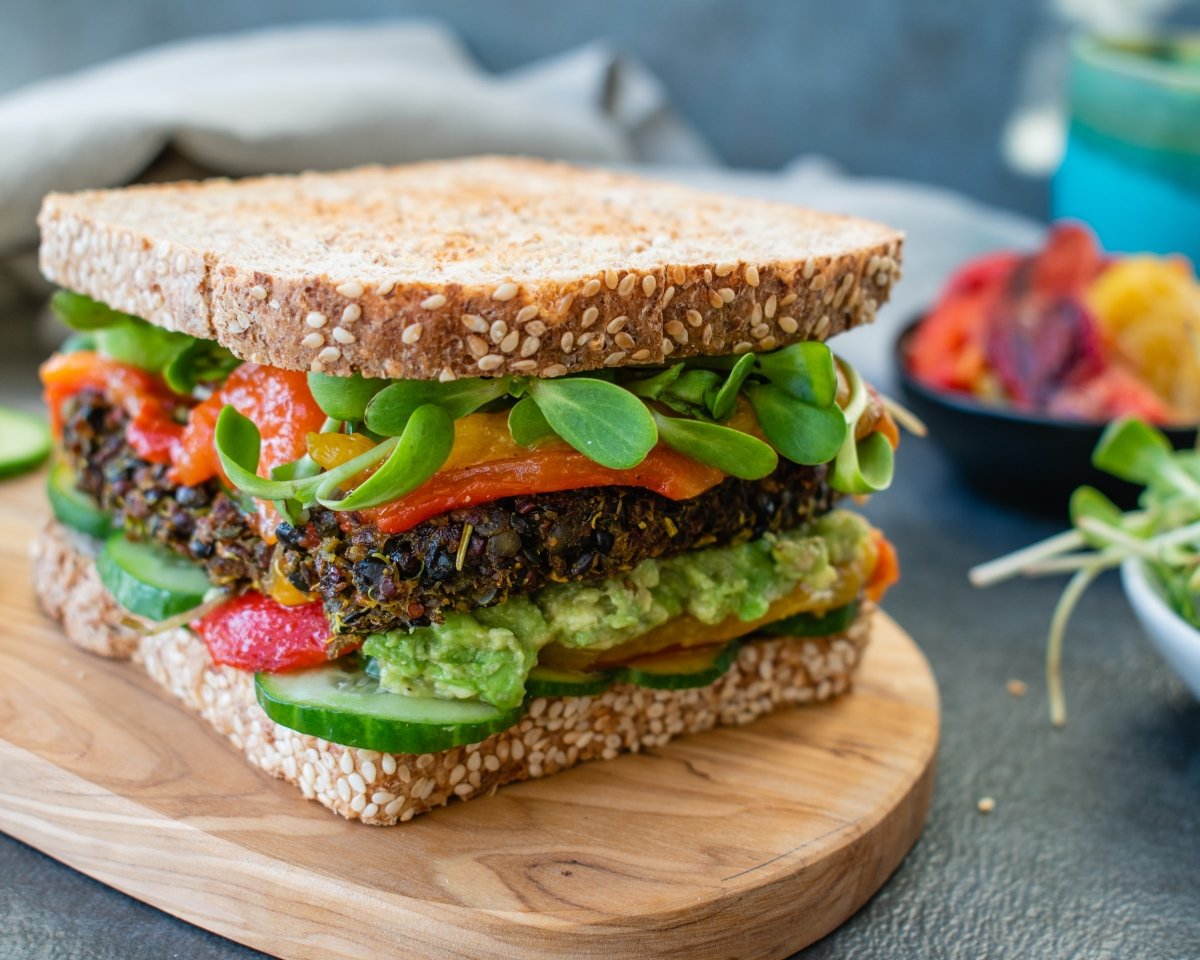
Vegan people do not eat meat, poultry, seafood or fish (so far this is similar to a vegetarian diet), and also strictly avoid consuming products such as eggs, honey, or dairy products such as cheese, milk, royal jelly, fermented drinks such as kefir (they do consume water kefir or kombucha), yogurt or butter. The Vegan Society defines veganism as a “way of living which seeks to exclude, as far as is possible and practicable, all forms of exploitation of, and cruelty to, animals for food, clothing or any other purpose.”
Therefore, it could be said that veganism is a trend that goes beyond diet and it is closely linked to ethical issues. A person is vegan because they seek animal welfare above all else, advocating that no living being should be used or exploited by mankind for its consumption. The vegan diet, therefore, is based solely and exclusively on foods that are 100 % vegetable origin.
Types of veganism
Within veganism, there are other stricter currents that restrict even more types of food or products, such as ethical veganism (which extrapolates its ethical foundations to all areas of life, including clothing, personal hygiene or cosmetics), raw veganism (requires that all food be cooked below 50 ºC, that is, at a low temperature), granivore diet (only allows the consumption of cereal grains), or fruitarianism (only fruits are consumed). Of course, in all these cases, advice from a professional nutritionist is necessary, since these are very restrictive diets that could put the health of those who practice them at risk.
What is vegetarianism
Vegetarianism is defined as a diet based mainly on the consumption of plant-based products, but which admits the use of animal products. So, vegetarians do not consume any type of meat or fish, excluding foods such as red meat, white meat or poultry, oily fish and white fish, shellfish and even insects, although their consumption in our culture is not yet widespread or normalized. However, foods that a vegan would never eat can be part of their diet, meaning eggs, honey, or dairy products such as cheese, milk, royal jelly, fermented milk such as kefir, yogurt, or butter.
As you can see, vegetarianism is less strict than veganism, since products that come from live animals do fit into their diet. The only restriction in this type of diet is, in short, the consumption of animal organs or tissues. A vegetarian follows a plant-based diet, but not exclusively, as a vegan person does.
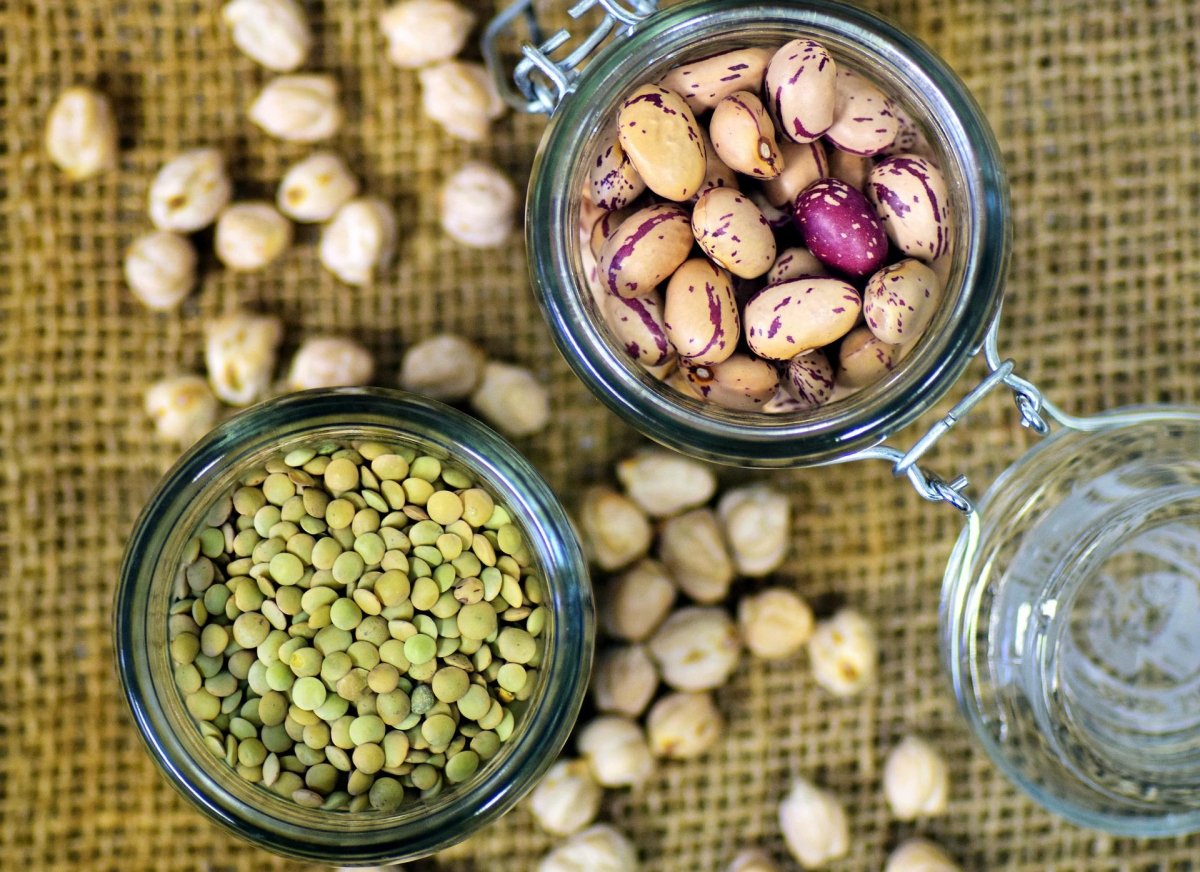
Generally speaking, it can be said that the fundamentals on which the vegetarian diet is based are not essentially ethical. Since it does allow the consumption of products of animal origin, in most cases people are vegetarian for health reasons. Whereas, as we have seen, vegans are not really so for nutritional reasons, but mainly for ethical and moral reasons associated with the respect for animal life and the environment. However, in neither of the two cases a generalization can be made, since each person experiences their process differently and has their own reasons for deciding to change their diet and/or their lifestyle.
Types of vegetarianism
Within vegetarianism, there are also different currents, such as ovolactovegetarianism (does not include the consumption of meat or fish, but does include dairy products and eggs), lactovegetarianism (does not allow the consumption of eggs but does allow milk or fermented products such as milk kefir), ovovegetarianism (milk and its derivatives are avoided, but not eggs), the semi-vegetarian diet (avoids all meats except fish and seafood), or the apivegetarian diet (the only products of animal origin allowed are honey and royal jelly). You already know about the last, and strictest, trend: veganism. As in the case of vegan diets, it is important that behind a vegetarian diet there is the support and personalized advice of a nutritionist.
Which one is healthier, vegan or vegetarian diets?
Veganism and vegetarianism imply the elimination of many foods and, therefore, a large number of nutrients, vitamins and minerals that are essential for any person’s health, both physically and cognitively. Nevertheless, this is not a problem since it has been proven that both diets are perfectly compatible with optimal health conditions. However, it is important to emphasize that no person should start a vegan or vegetarian diet on their own, that is, without a doctor or professional dietitian monitoring their intake, as nutritional deficiencies or imbalances could appear. So the following question arises: which one is healthier, veganism or vegetarianism? Are there risks to the vegetarian and vegan diets?
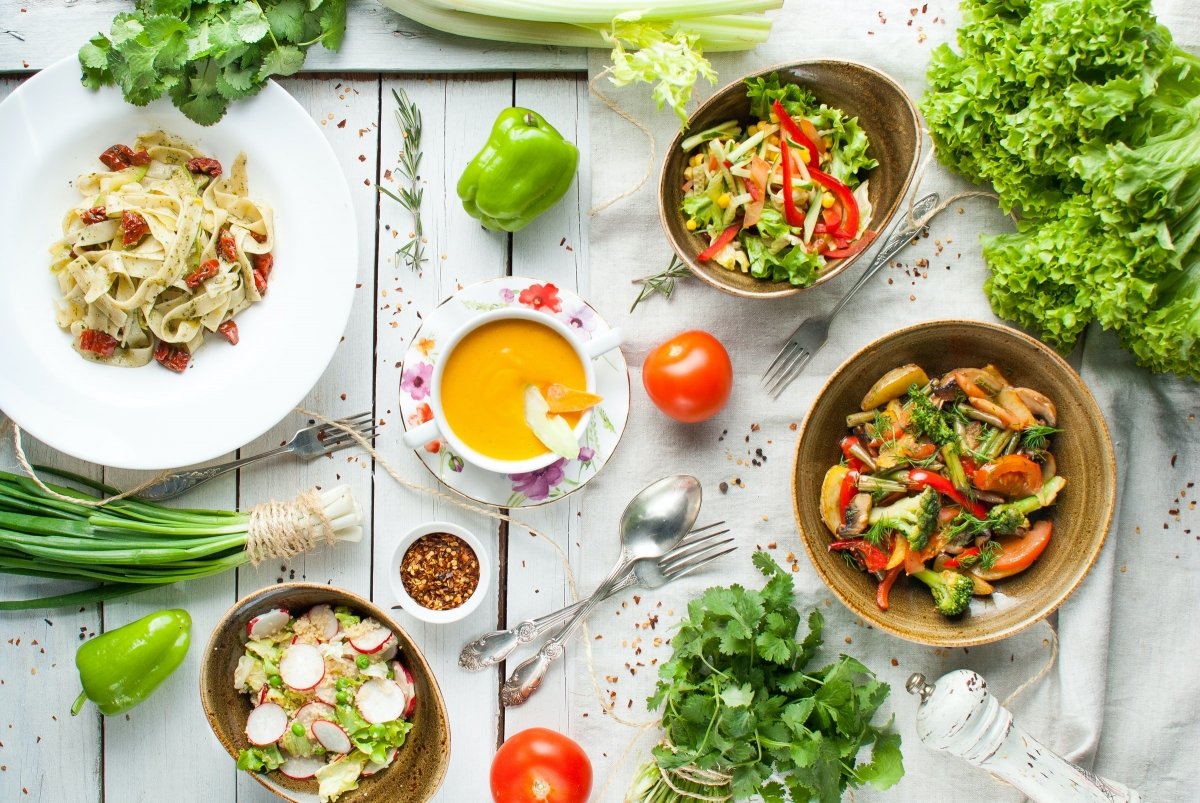
Claiming that one diet is healthier than the other is very complex, because when assessing a person’s health condition, not only diet must be taken into account, but other aspects such as lifestyle, physical activity, sleep quality, smoking, consumption of processed foods, etc.
TBearing that in mind, it could be said that both veganism and vegetarianism diets offer similar health benefits, and both one and the other can present advantages and disadvantages depending on which cases. A study conducted by the American Dietetic Association explains that these diets, when appropriately planned, “are healthful, nutritionally adequate, and may provide health benefits in the prevention and treatment of certain diseases.”
However, it cannot be forgotten with these diets one runs the risk of some nutritional deficiencies. It is easy to gather that a vegetarian is going to meet the need of certain nutrients to a larger extent than a vegan person, such as calcium, phosphorus or vitamin D, absorbed mainly from dairy products. Not consuming fish or meat, for instance, can lead to a lack of vitamin B12 and some important proteins and, avoiding certain fish, can also put the person at risk of suffering from an omega 3 fatty acids deficiency, specifically EPA and DHA, healthy fats necessary for cognitive function.
Furthermore, it is important to know that vegetarian and veganism are not synonyms with being healthy since these types of diets are perfectly compatible with the large number of unhealthy processed and ultra-processed products existing on the market today, both sweet and savory. Fast food, no matter how vegan or vegetarian it may be, is still “junk food” and, therefore, unhealthy.
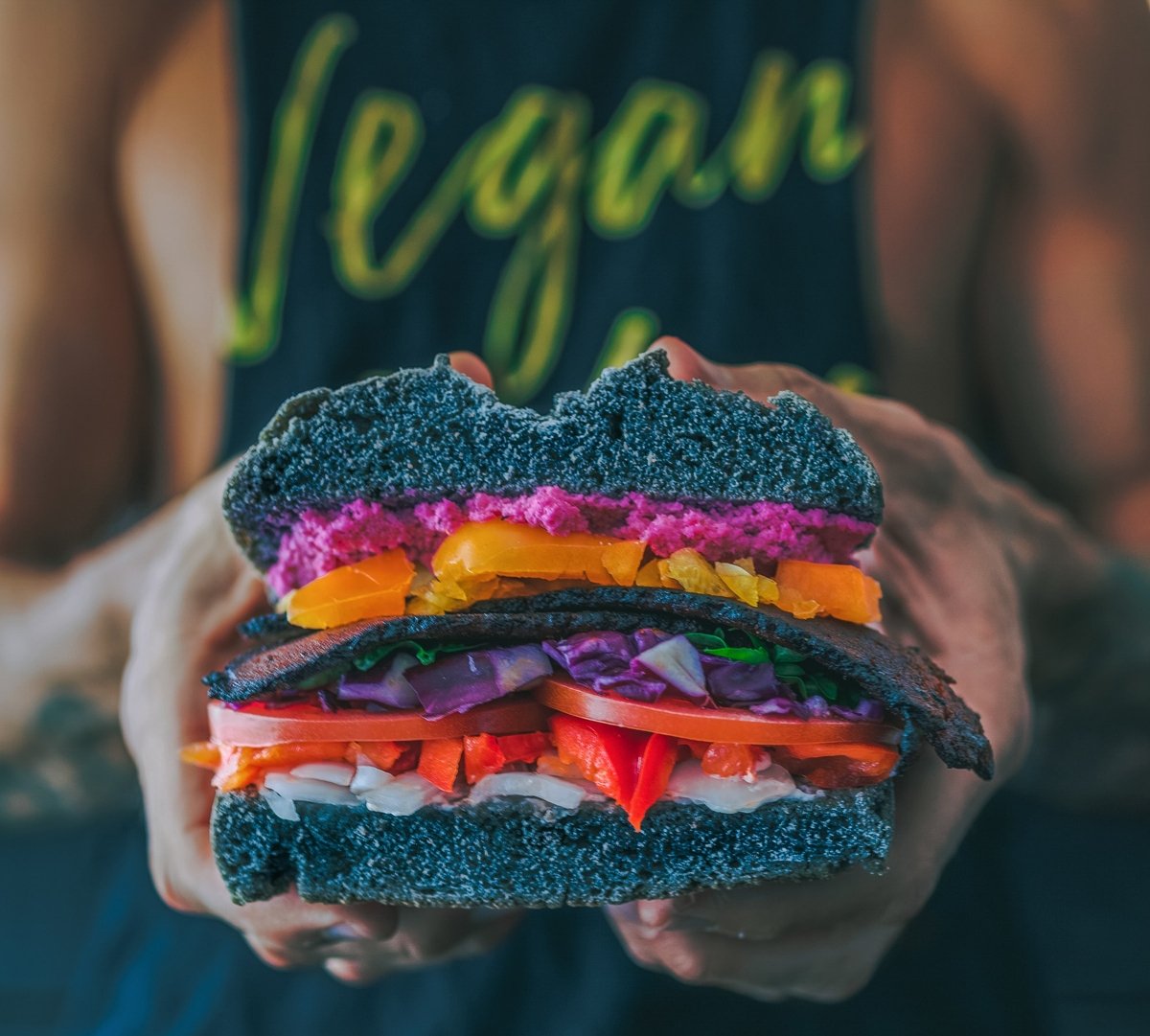
Vegan vs vegetarian, differences beyond diet
As we pointed out at the beginning, vegans are usually driven by an ethical issue, by awareness and care for the environment and the well-being of all animal species, rather than for health motivations. Although this can also occur in vegetarianism, when a person stops eating meat, they tend to do it more for health reasons.
This is why it is said that veganism goes beyond diet and it is defined as more of a lifestyle. One is a vegan in all aspects of their life, including the use of cosmetics, clothing, footwear, objects and dental and body hygiene products, household cleaning, etc. This entails the usage of items made of leather, wool, silk, beeswax, soaps, candles, and other products that contain animal fats. Latex products that contain casein, which comes from milk proteins, or other products that have been tested in animals or that come from them, are also left out of their everyday life. However, this may not happen in all cases, as following a strict vegan diet 100 % can be complex and, let's not forget, more expensive.
What foods do vegans and vegetarians eat?
Luckily, in both vegan and vegetarian diets there is an abundant consumption of a wide variety of fruits, vegetables, and vegetables, but also the so-called vegetable meat or vegan meat, meat substitutes that are increasingly widespread and have an increasingly greater role in food stores, supermarkets and restaurants, beyond those strictly labeled as vegan or vegetarian. These sorts of foods are an important source of protein for people who follow these diets, and among the most consumed types we find tofu, seitan, tempeh or textured soybeans.
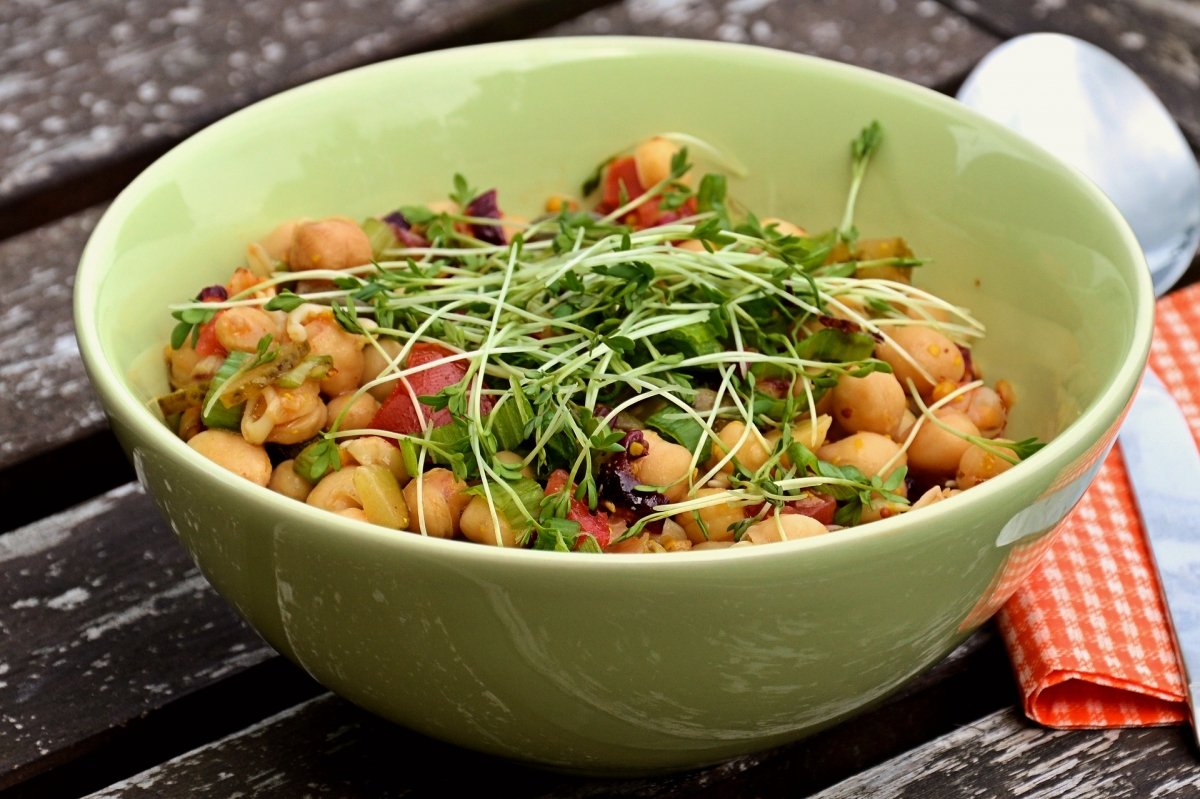
In addition to these, there are other vegetable protein sources that are essential in vegetarian and vegan diets. The importance of consuming these foods lies in the fact that their nutritional components play a fundamental role in carrying out various functions in the body, as well as contributing to the formation and repair of bones, muscles and other tissues. Among the plant foods with the highest protein value, we find legumes (soybeans are undoubtedly the legume with the highest protein content), cereal grains, seeds, nuts, algae, mushrooms, some tubers, avocados, and leafy greens, among others.
As we have seen, veganism and vegetarianism are not synonyms. Whether you eat meat or are thinking of following a vegan or vegetarian diet, it is interesting to learn about the different food alternatives that exist to choose the one that best suits our tastes, ethical values, or personal and health circumstances. Whatever our choice, let's not forget that our priority must always be our health. And if you want to know more, you may be interested in the wide variety of vegan recipes and vegetarian recipes with which you can start get into this type of diet.






